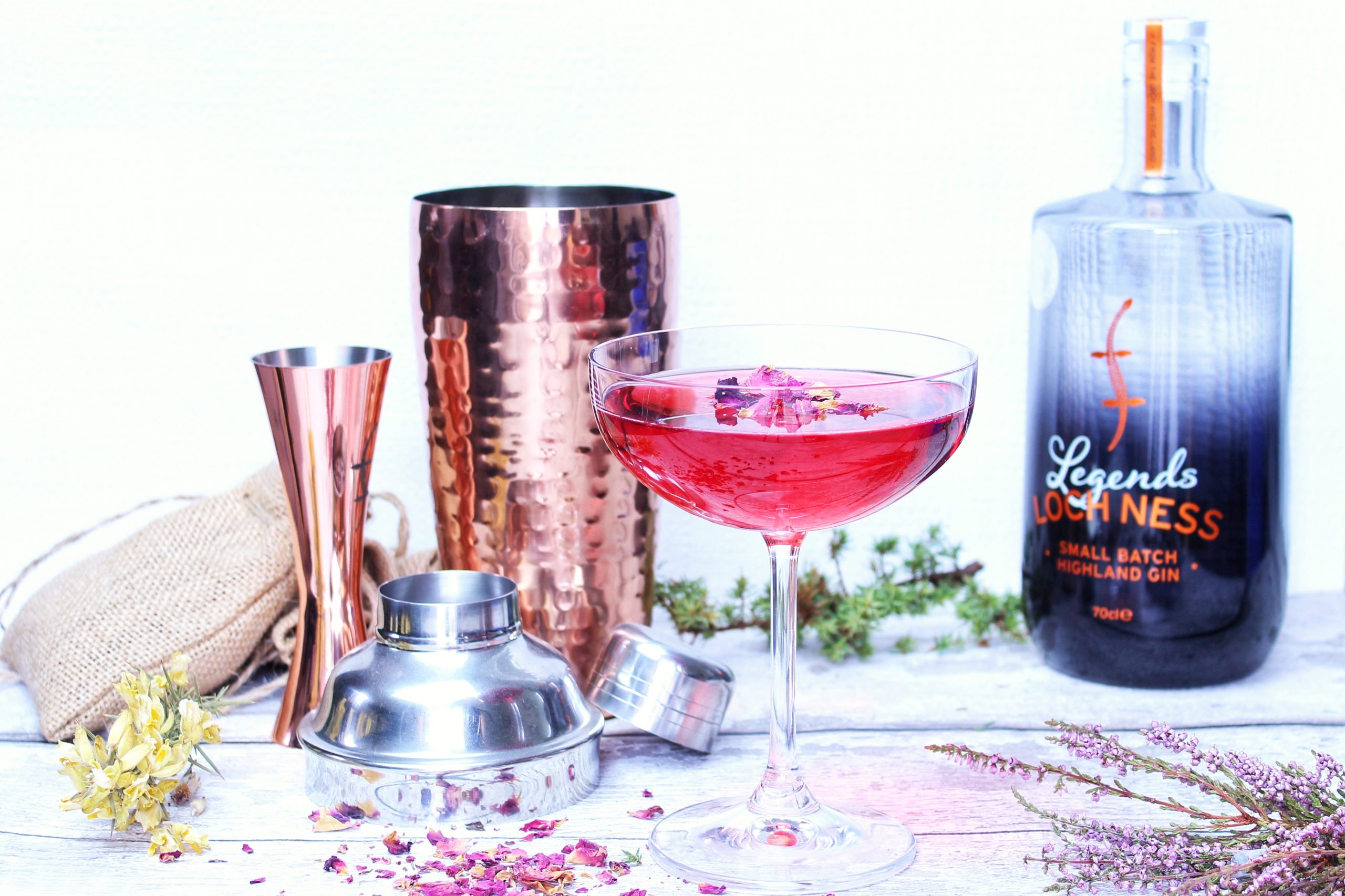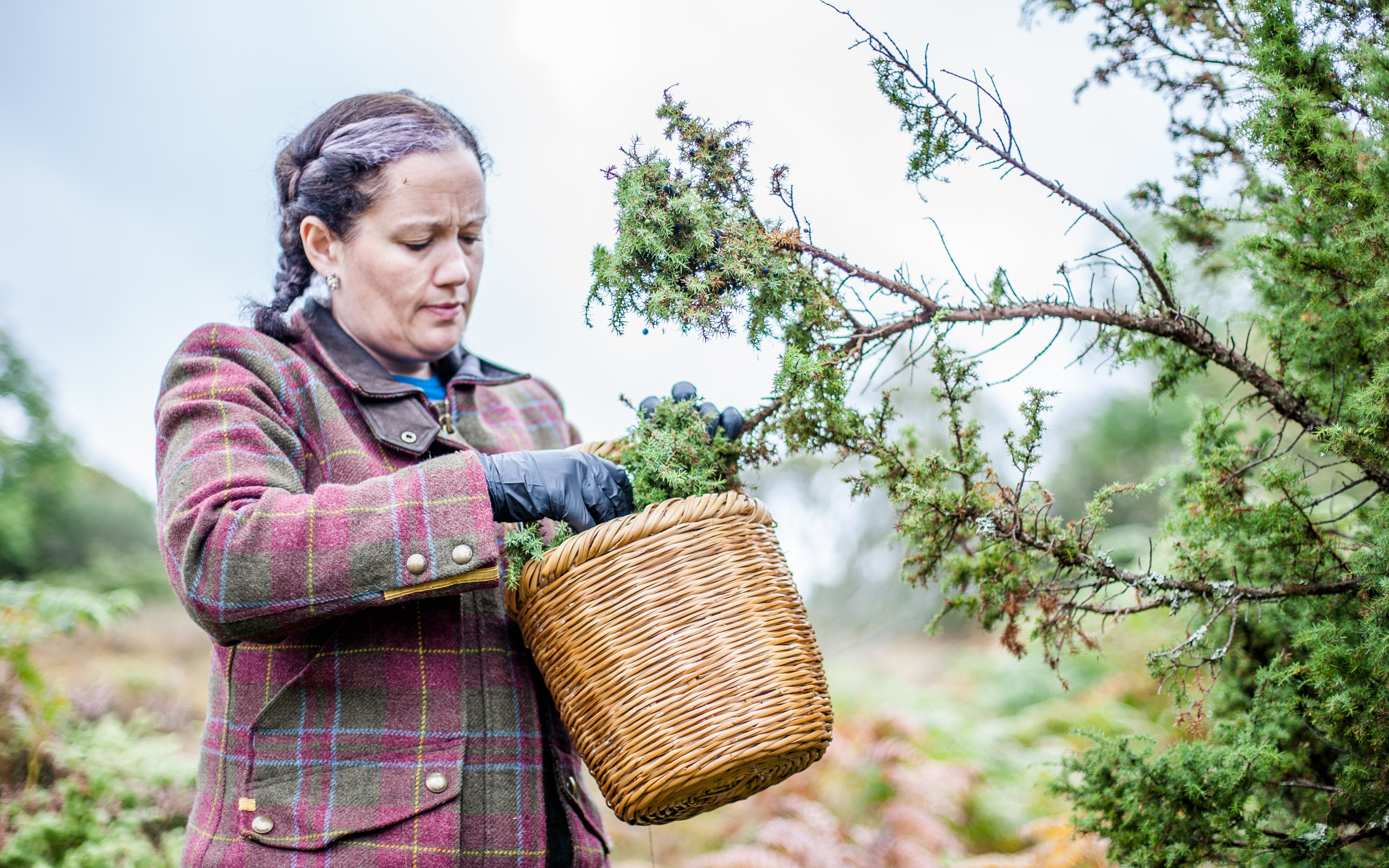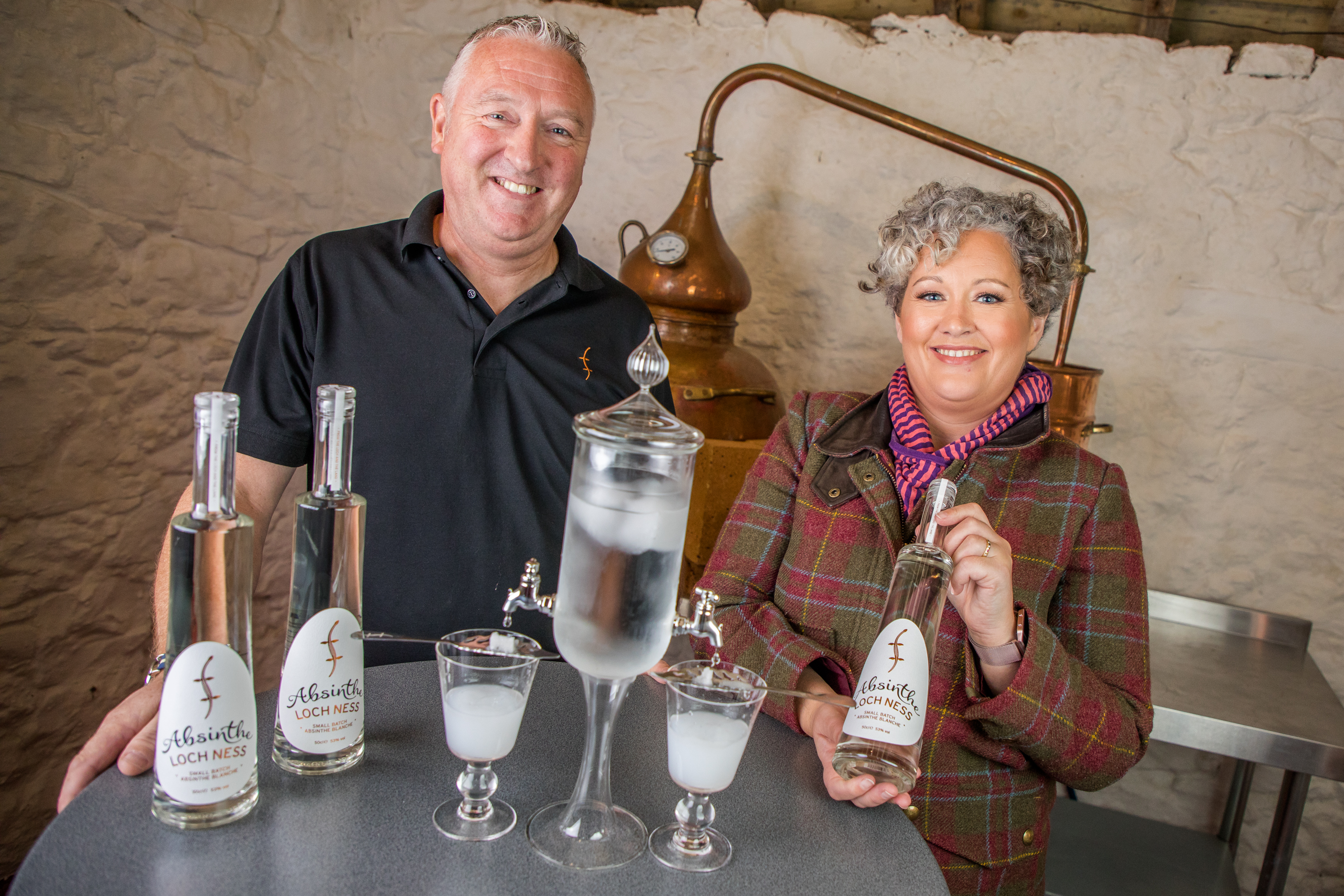Tempted to make your own gin? Award-winning couple reveal how you can become a distiller

Parenting advice, hot topics, best buys and family finance tips delivered straight to your inbox.
You are now subscribed
Your newsletter sign-up was successful
Despite juggling a busy career as a GP, Lorien Cameron-Ross was determined to nail the perfect blend of gin. She reveals how she started her own gin distillery and built a best-selling brand from her own home.
Swirling the liquid around my glass, I bring it to my lips and take a sip. ‘Delicious,’ my husband, Kevin, then 52, and I nod in agreement. After almost a year, and countless attempts, Kevin and I have finally created our very own gin using botanicals growing around our home in Loch Ness. We’re thrilled to have finally found our taste, and at age 41, I have my own gin distillery.
The idea of creating our own gin came in 2015 after Kevin and I went on a gin tour in Inverness. Learning Scotland imports most of its juniper – the main ingredient of gin – from overseas, we saw an opportunity.
Back at home in Loch Ness, we lived on a small estate and were surrounded by an abundance of wild juniper, so Kevin and I decided we could pick the berries to sell to distilleries. Only, that was very labour intensive, time consuming and not cost-effective. It took three hours to pick a kilogram of berries that sold for just £7.

‘Why don’t we just make our own gin?’ I joked to Kevin, exhausted from a day of picking. But when he darted me back a more serious look, I started to think it wasn’t such a silly idea. Neither of us had experience running a business, nor in the food and drink industry.
Professionally, I worked as a GP and Kevin was a retired detective. We knew we had a lot to learn if we were going to make this work, and in summer 2015 we started making enquiries. We spent many hours looking into the red tape and regulations and surveyed our land to see if we could harvest enough botanicals. We did research, asked lots of questions, and Kevin even took a course on distilling with the Institute of Brewing & Distilling. Using savings, we converted an old building on our estate into a distillery and bottling plant, bought a copper pot still and were granted our licences.

Juggling a new enterprise alongside my medical career proved very difficult. I’d spend my days helping my patients and my nights working on the business. But after having navigated the initial hurdles, it was time to distill some gin. The months that followed were characterised by trial and error and we made a lot of bad gin. But that day at the beginning of 2016 when we nailed the perfect blend of botanicals and Loch Ness water, all our hard work paid off.
Parenting advice, hot topics, best buys and family finance tips delivered straight to your inbox.
That June, we entered the Global Gin Masters blind tasting contest in London – and won Gold in the Ultra-premium Gin category and Silver in the London Dry Gin category. Our brand, Loch Ness Spirits, launched the following month and the orders flooded in. Our local community really took our product to their hearts, all wanting a bottle. We were soon making four batches of 500 bottles a year and still had a waiting list. Kevin and I couldn’t believe it.

In September 2017, we expanded and I travelled to France and Switzerland to learn how to make absinthe. Using home-grown botanicals, including wormwood, and the fresh pure water that flows into Loch Ness, in August 2018 we launched our own, clear Swiss-style absinthe. In November, we became the first company in the UK, and me the first ever woman in the world, to win Gold at the Absinthiades festival in France.
For us, Loch Ness Spirits is exactly what we hoped it’d be – spirits that cherish the flavours of the botanicals in our locality. From picking, distilling and sticking labels on bottles, our business has required time, effort and money. But I’m proof that you can do anything you set your mind to.
Discover more at wearelochness.com
Tempted to make your own gin? How you can become a distiller
✱ To apply for a distiller’s licence, head to gov.uk/guidance/spirits-duty
✱ There are many courses available to learn how to brew and distill. Visit ibd.org.uk for more information.
✱ Setting up your own distillery can be expensive. Make sure you do your research first so there are no hidden costs and surprises.